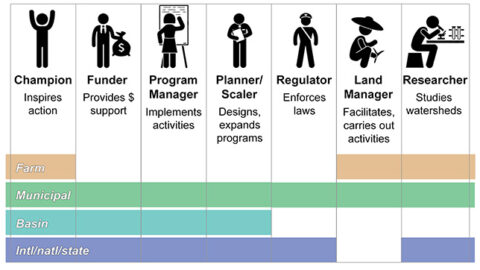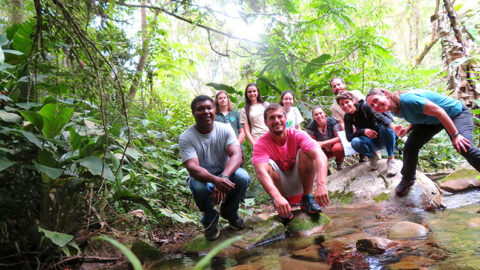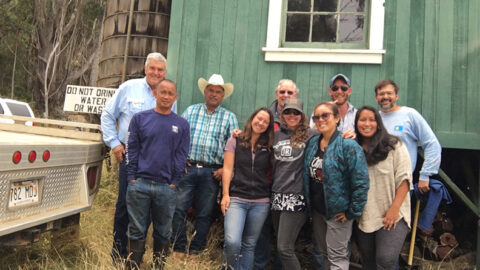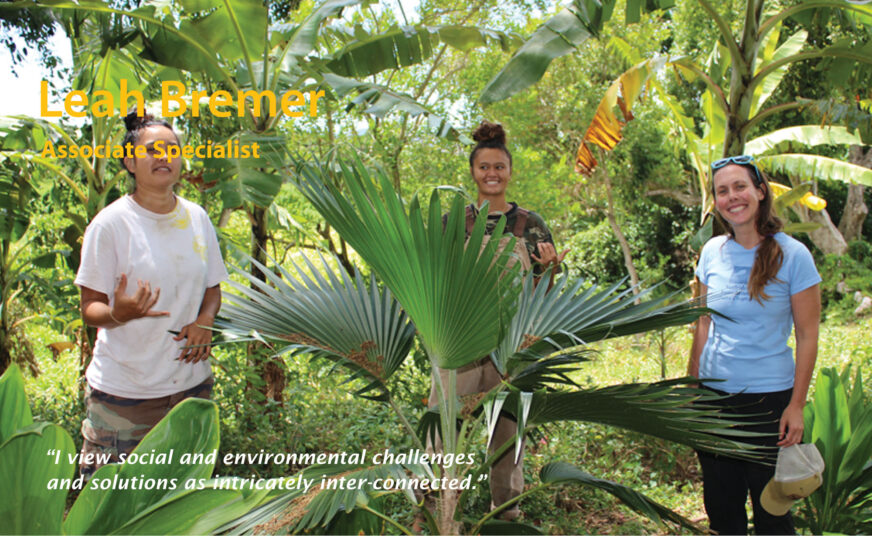
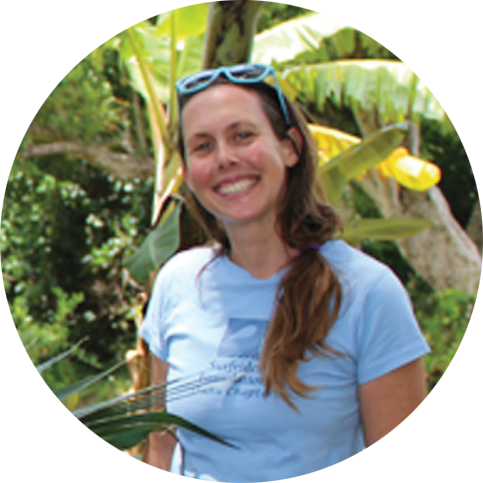
Leah Bremer
______________________________________________________
I view social and environmental challenges and solutions as intricately inter-connected.
Dr. Bremer’s background as a geographer and conservation scientist enables her to view social and environmental challenges from a unique perspective and to propose inter-connected solutions to water and watershed policy and management. She is able to focus on interdisciplinary, applied, and problem-driven research with collaborative teams of researchers, community groups, agencies, non-profits, and others to achieve informed, effective, and equitable decision making. Through her joint appointment with WRRC and UHERO, Leah is able to channel her considerable experience in a variety of research projects. Leah also enjoys teaching as a way to connect with students and learn from their enthusiasm and perspectives on environmental and social challenges.
EDUCATION
- BA, Psychology, Northwestern University
- MS, Conservation Biology, Victoria University of Wellington, New Zealand-Macquarie University, Australia
- PhD, Geography, University of California at Santa Barbara – San Diego State University
INTERESTS
- Ecosystem services and social-ecological systems
- Watershed management and conservation
- Joint social and ecological outcomes of land-use and climate change
- Water resources
CURRENT PROJECTS
- Linking watershed and groundwater management to groundwater dependent ecosystems and their linked ecological, cultural, and socio-economic values
- Enhancing social-ecological resilience and ecosystem services through restoration of coastal agroforestry systems
- Land-based solutions: Activating landscapes for climate change mitigation and soil health
RESEARCH PROJECTS
- « Previous
- 1
- 2
